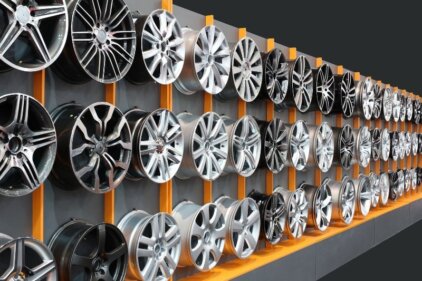Motors have become an integral part of our modern world, powering everything from vehicles to machinery. But have you ever wondered how motors came into existence? Join me on a fascinating journey through the history of motors, as we unveil the technological advancements and innovations that have shaped the world we live in today.
The invention of the first motor
The birth of the motor can be traced back to the early 19th century, with the pioneering work of Michael Faraday. In 1821, Faraday discovered electromagnetic induction, which laid the foundation for the development of electric motors. His experiments demonstrated the conversion of electrical energy into mechanical energy, a breakthrough that revolutionized the way we harness power.
Early advancements in motor technology
Following Faraday’s groundbreaking discovery, inventors and engineers around the world began experimenting with different designs and concepts to improve motor technology. One notable figure in this journey is Thomas Davenport, who is credited with building the first practical electric motor in 1834. Davenport’s motor utilized a rotating armature and a commutator to achieve continuous rotation, setting the stage for future advancements.
In the late 19th century, the introduction of the first alternating current (AC) motors by Nikola Tesla and the development of the three-phase induction motor by Galileo Ferraris marked significant milestones in motor technology. These advancements allowed for more efficient and powerful motors, paving the way for widespread industrial use.
The impact of motors on transportation
Motors have had a profound impact on the transportation industry, revolutionizing the way we travel. The invention of the internal combustion engine in the late 19th century gave rise to the automobile industry, enabling the mass production of cars and transforming personal mobility. With the advent of motors, distances that were once considered insurmountable became easily traversable, connecting people and communities like never before.
Motors in industrial applications
Motors quickly found their place in various industrial applications, powering machinery and equipment that revolutionized manufacturing processes. Electric motors, with their versatility and efficiency, became the preferred choice for industries worldwide. From textile mills to assembly lines, motors played a crucial role in increasing productivity and driving economic growth.
The evolution of electric motors
The evolution of electric motors continued throughout the 20th century, with advancements in materials, design, and control systems. The introduction of brushless DC motors and the development of more efficient motor technologies paved the way for numerous applications in consumer electronics, robotics, and renewable energy systems. Electric motors became smaller, lighter, and more powerful, enabling innovations such as electric bicycles, drones, and electric vehicles.
The rise of combustion engines
While electric motors were making significant strides, combustion engines were also undergoing their own evolution. The internal combustion engine, powered by fossil fuels, became the dominant choice for transportation and various industrial applications. Continuous improvements in engine efficiency and the advent of technologies such as turbocharging and fuel injection further enhanced the performance and reliability of combustion engines.
Motors in the digital age
The digital age brought forth new possibilities for motors, with the integration of advanced sensors, control systems, and connectivity. Motors became smarter, more precise, and capable of autonomous operation. In industries such as robotics and automation, motors played a pivotal role in enabling sophisticated machines and systems that could adapt to changing conditions and perform complex tasks with ease.
Future trends in motor technology
As we look ahead, the future of motor technology holds immense promise. The push for sustainability and the need to reduce our dependence on fossil fuels are driving the development of electric motors and alternative energy sources. Advancements in battery technology and the rise of renewable energy are making electric vehicles more practical and affordable. Additionally, the emergence of artificial intelligence and machine learning is poised to revolutionize motor control and optimization, opening up new possibilities for efficiency and performance.
Conclusion
The history of motors is a testament to human ingenuity and our relentless pursuit of progress. From the humble beginnings of Faraday’s experiments to the advanced motors of today, we have come a long way. Motors have transformed our world, powering industries, enabling transportation, and driving innovation. As we continue to push the boundaries of technology, the future of motors holds exciting possibilities that will shape our world for generations to come.





